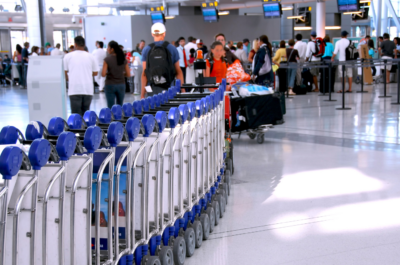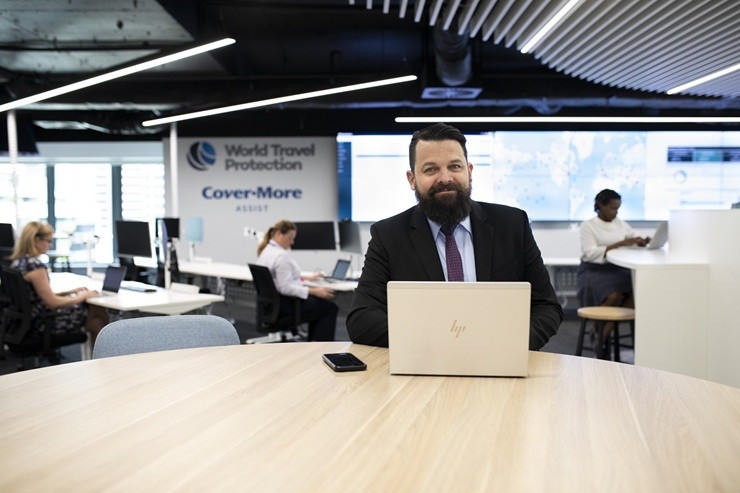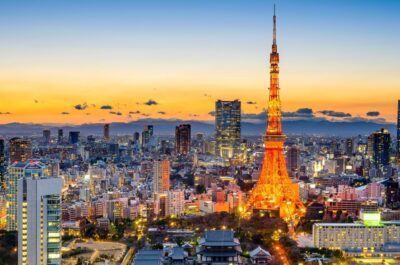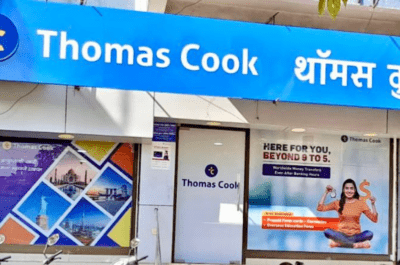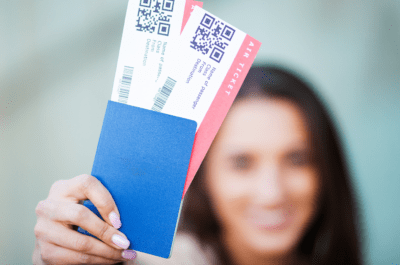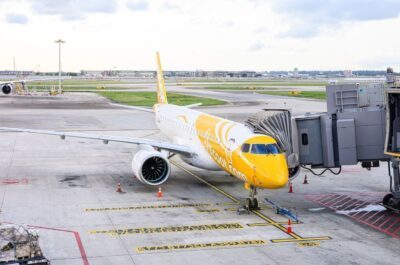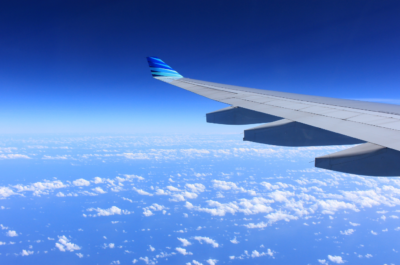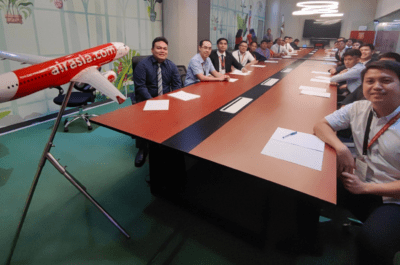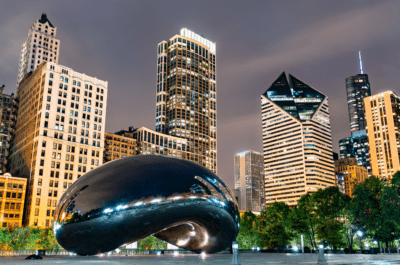Rodger Cook from travel risk management company, World Travel Protection (WTP), says theft from hotel rooms and crime in and around hotel precincts was already increasing prior to the pandemic.
With international travel now back on the itinerary for Australians, a vaccine passport and a PCR test will be at the top of the list when it comes to travel prep. But as travellers begin enjoying the escapism of exotic hotels again, security experts advise simple tips for staying safe, and highlight what may have changed since Aussies last took off.
Rodger Cook from travel risk management company, World Travel Protection (WTP), says theft from hotel rooms and crime in and around hotel precincts was already increasing prior to the pandemic.
“This is likely to continue given COVID-19’s economic impact on local communities,” says Mr Cook, General Manager of Global Security Services, whose team has identified a spike in opportunistic offending against travellers in those parts of the world that have welcomed back tourists.
“Tourist destinations in Central America have reported an increase in crime impacting tourists and the areas in which they like to congregate – this is expected to be the case in a number of other destinations as tourism returns.”
Strawberry farmer Steve Smith* experienced hotel crime closer to home this year when he travelled to Sydney to attend a trade show for work. As he slept, thieves broke into his hotel room during the night and stole his bag, which also contained his car and house keys. The criminals then stole his car, which contained all of his trade show material, resulting in a total potential loss of over $30,000. On top of the financial cost, the experience was very distressing, and Mr Smith had to go through the process of replacing credit cards, the locks on his house, plus he couldn’t continue with his business at the trade show.
1. The surprising item every traveller should pack – and it fits in the smallest part of your suitcase
Mr Cook says this crime could have been thwarted with something as simple as a doorstop. “Even in the modern era of high-tech surveillance and monitoring, the humble doorstop can still hold its own. This is the one item every leisure and business traveller should pack before leaving home, which, when wedged under the door, can provide enough of a deterrent to make the thieves reconsider.
“Don’t assume the locks on your door will stop an ambitious thief; hotel locks are designed in a way that they can be opened if you know how. With a doorstop you can provide that extra level of security and if you purchase one with an inbuilt alarm – which are as loud as a fire alarm – it can scare off any would-be thief.” explains Mr Cook.
2. Think about those valuables when packing and storing
Travellers should reconsider the need to take expensive items along for the ride, leaving valuable and attractive items at home. Once you’re at the hotel, keep your bags in your room locked if you’re away, and reconsider storing valuables in hotel safety boxes – you can literally carry some of those ‘safes’ out of the room!
3. Location, location
Mr Cook says another way travellers can ensure their accommodation remains more secure is by requesting a room between the third and sixth floor of a hotel.
“This minimises the ability for thieves to climb onto balconies and through a window, but is still within reach of most fire ladders in case of emergency. Also ensure your room level needs a key/card for access; levels with hotel bars are usually accessible by the general public so where possible, ask for a room away from general entry areas.”
4. Be aware of your surroundings
Over in the US, WTP’s Regional Security Director for North America, Frank Harrison, advises using your powers of observation to keep safe.
“Identify emergency exits and fire escapes and note how many steps away they are from your door if you have to evacuate in heavy smoke, total power loss or a large-scale criminal act targeting the hotel. Also look out for people in the hotel foyer who might be paying you too close attention and possibly judging you as a potential target of crime,” Mr Harrison says.
“I have a practice of approaching the check-in, taking a step to the side, turning to face the foyer and holding up my phone, appearing to check it – you can do a quick scan this way. If you see someone or something out of place, point it out to the staff.”
5. Pack a ‘Go Bag’
Mr Harrison also recommends getting into the habit of packing a ‘go bag’ with essentials such as water, non-perishable food items, a small first aid kit and important documents.
“Many travellers have faced an emergency evacuation in North America including major earthquakes, wildland fires, tornadoes or flooding. The first 72 hours are critical, and you may be on your own until help arrives so the ‘go bag’ is your survival kit,” he says.
6. Prevent unwanted visitors
In his London-based role as Business Development Director, Alex Twiggs is a seasoned traveller and believes a safety factor often overlooked takes place at the moment of checking in.
“In WTP’s travel risk training, we advise clients not to give their own address out at reception; if you’re travelling for work, provide your company’s details instead. Tell reception staff to write down your room number rather than speaking it out loud so potential criminals can’t easily locate you. And book a room next to the elevators to minimise the risk of being cornered at the end of a long hotel corridor,” Mr Twiggs says.
7. Consider your cyber security
The WTP team recommends avoiding hotel Wi-Fi use; instead utilise a Wi-Fi dongle or other hot-spotting device for increased cyber security. Only store on your computer what you need for your trip to minimise the data that can potentially be stolen or breached.
8. Choose a hotel that is suitable for a long-term relationship!
As General Manager – Medical Assistance for WTP in Brisbane, Julie Saunders has seen it all in terms of what can go wrong and agrees that planning ahead is essential for a safer travel experience.
“As international travel resumes from Australia, COVID-19 is here to stay, so choosing the right accommodation has never been more important, preferably with openable windows and good ventilation,” advises Ms Saunders.
“We urge travellers to think of the possibilities of contracting the virus, which could potentially mean an extended stay at your hotel. In case you need to ultimately isolate for two weeks, be mindful of booking a room that is comfortable and has room to move.”
9. Be risk aware
Rodger Cook also leads WTP’s travel-risk training and recommends businesses with staff travelling internationally should undertake risk assessments, including on the destinations, accommodation and personnel who are travelling.
“Business travellers can represent high-value targets for opportunistic thieves and cyber criminals. Companies can undertake a comprehensive risk assessment, but the onus is also on the individual staff member to look after their own safety. That’s why we provide travel risk training to educate travellers to be risk aware and informed, so they can recognise anything unusual,” concludes Mr Cook.
Vicky is the co-founder of TravelDailyNews Media Network where she is the Editor-in Chief. She is also responsible for the daily operation and the financial policy. She holds a Bachelor's degree in Tourism Business Administration from the Technical University of Athens and a Master in Business Administration (MBA) from the University of Wales. She has many years of both academic and industrial experience within the travel industry. She has written/edited numerous articles in various tourism magazines.






